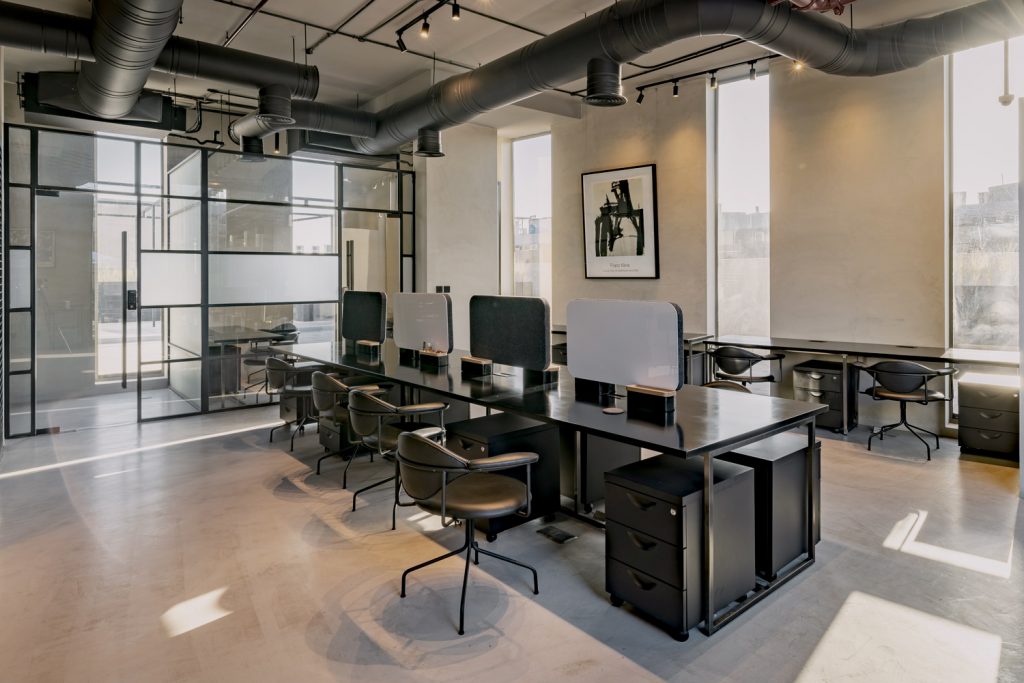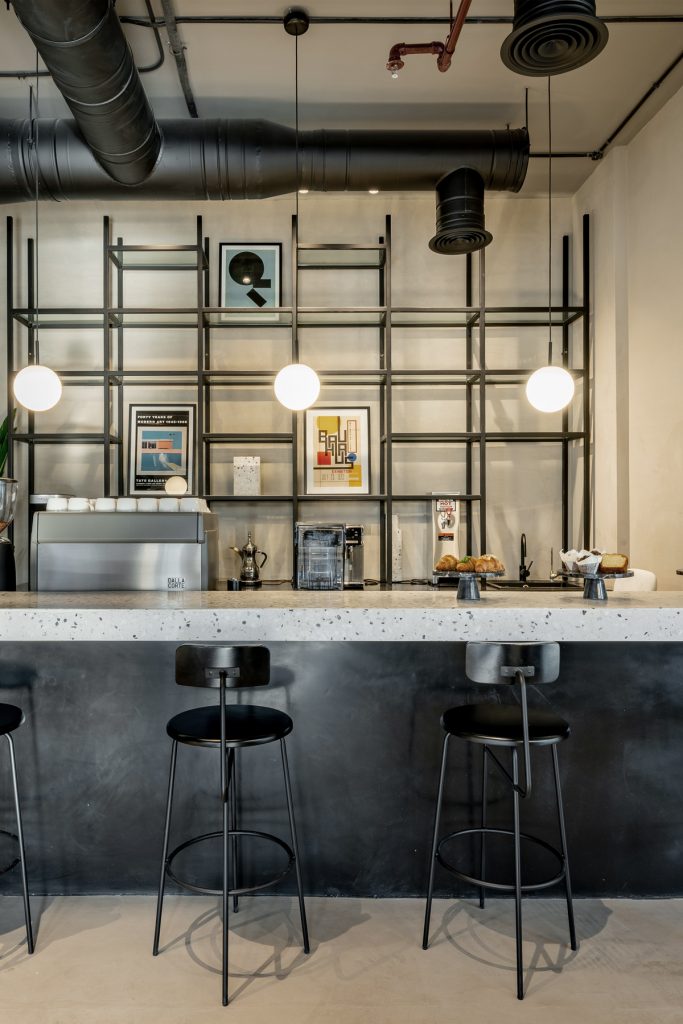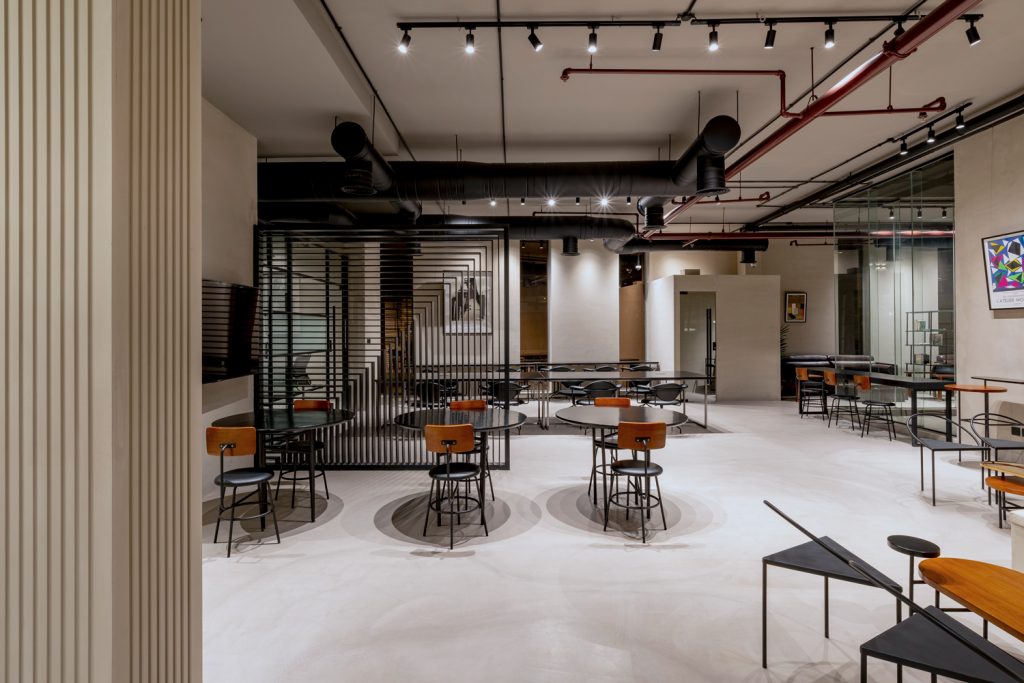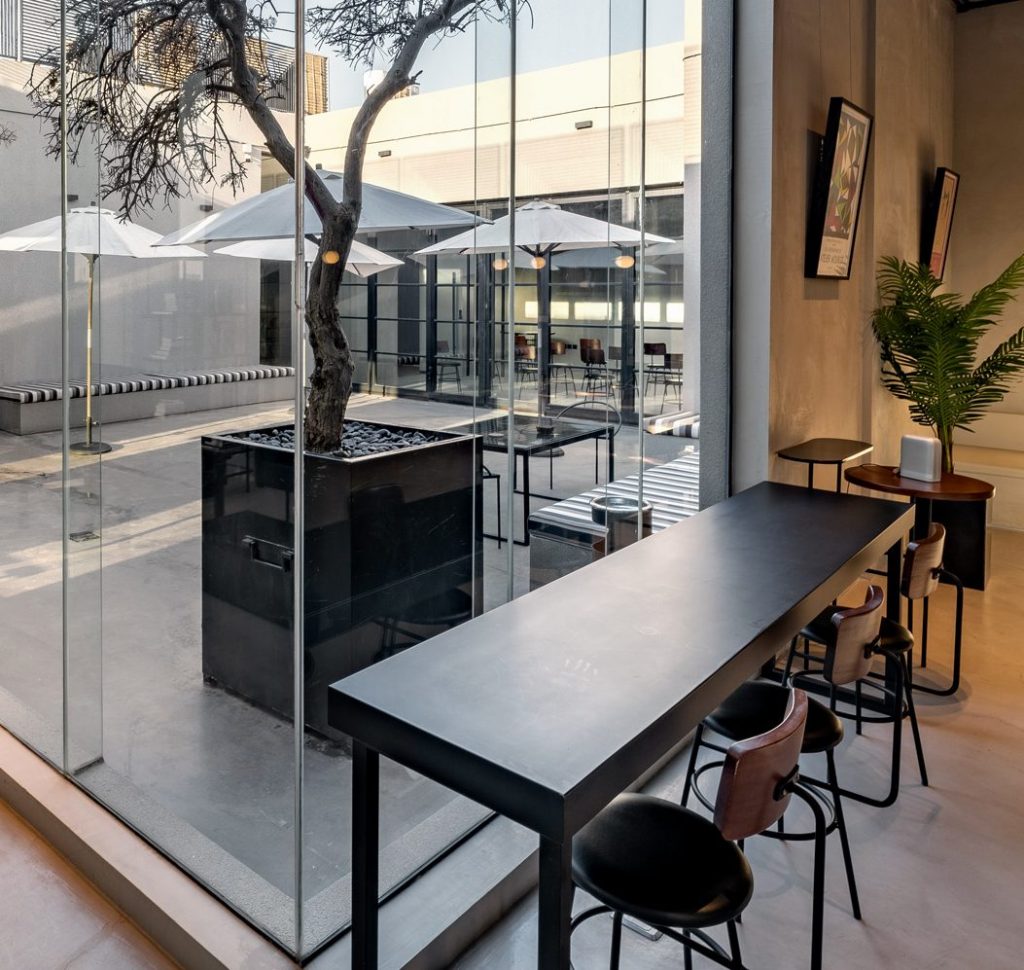Office Space in Riyadh: 5 Key Tips Before You Rent

In recent years, Riyadh has emerged as one of the most dynamic business hubs in the Middle East. Fueled by ambitious economic reforms under Saudi Arabia’s Vision 2030, the city has attracted an influx of entrepreneurs, multinational corporations, creative professionals, and startups looking to take advantage of its expanding infrastructure and favorable investment environment. As a result, the demand for high-quality office space in Riyadh has grown significantly – and with it, the need for careful decision-making when it comes to renting a workspace.
This guide is designed to help professionals, businesses, and decision-makers navigate the complex landscape of renting office space in Riyadh. Through five comprehensive tips, we will explore the most critical factors to consider before committing to a lease or membership.
| Tip | What to Consider |
|---|---|
| 1. Define your business needs | Choose between private office, shared workspace, or creative studio based on team size, privacy level, and work style. Estimate how much space and which facilities you actually need. |
| 2. Prioritize a central location | Look for areas like Al Olaya or King Fahd Road. A central, well-connected location saves time, impresses clients, and keeps your team happy with easy access to services. |
| 3. Understand pricing models | Compare flexible memberships vs. fixed leases. Review what’s included in the rate and watch for hidden costs like printing, meeting room hours, and deposits. |
| 4. Focus on real productivity amenities | High-speed internet, ergonomic furniture, quiet zones, and well-equipped meeting rooms are essential. Don’t get distracted by superficial perks like game areas or themed lounges. |
| 5. Always visit before committing | Inspect lighting, noise, temperature, and cleanliness. Ask questions about lease terms, guest access, booking systems, and service response times before signing. |
1. Define Your Business Needs and Work Style
Before you even begin touring properties or evaluating pricing, the most critical first step is to assess your business’s operational structure and understand how your team works best. Your office space should support—not hinder—your workflow, collaboration style, and client engagement. Choosing the wrong type of workspace can lead to inefficiency, team dissatisfaction, and unnecessary overhead.
Private office – shared workspace – creative studio
In Riyadh’s modern business environment, companies and individuals can choose from several workspace formats. Each offers distinct advantages, but the best option depends on your company’s size, structure, level of privacy required, and overall work rhythm.
1. Private office
A private office offers an enclosed, dedicated area that is not shared with other tenants. This is typically best suited for businesses that:
- Handle sensitive or confidential information
- Require quiet and uninterrupted concentration
- Host frequent client meetings
- Need to create a strong sense of brand identity and ownership
Pros:
- Maximum privacy and control
- Ability to customize layout and branding
- Ideal for executive teams, legal professionals, financial consultants, and medical or security-based startups
Cons:
- Higher cost compared to other formats
- Can limit informal collaboration unless paired with shared breakout spaces
2. Shared workspace (coworking desks or hot desks)
Shared workspaces, also known as coworking spaces, are typically open-plan environments where individuals or teams share desks, communal areas, and office amenities. These are well-suited for:
- Freelancers, remote workers, and consultants
- Early-stage startups looking to reduce overhead
- Professionals who thrive in collaborative settings
Pros:
- Lower cost and flexible membership terms
- Access to shared amenities (meeting rooms, kitchens, events)
- Built-in community that encourages networking and partnerships
Cons:
- Limited privacy
- Desk availability may fluctuate
- Less control over noise and surroundings
3. Creative studio
Creative studios offer a hybrid space—often more flexible and design-forward—geared toward individuals or teams in visual arts, content creation, media production, fashion, or design. These studios might include white walls, modular furniture, strong lighting, or space for equipment.
Pros:
- Encourages creative output in a non-traditional office environment
- Space is often configurable for shoots, displays, workshops, etc.
- Can serve as both a workplace and client-facing showroom
Cons:
- Not ideal for administrative-heavy operations
- May lack acoustic privacy or corporate ambiance
Estimate your required square footage and facilities
Once you have identified the type of office space that best aligns with your business model, the next step is to estimate the size and resources you truly need. Renting too much space leads to wasted budget, while too little can create operational bottlenecks.
General square footage guidelines:
While standards can vary, a useful benchmark is:
- Solo professionals: 6–8 square meters
- Small teams (2–4 people): 15–25 square meters
- Medium teams (5–10 people): 30–60 square meters
- Larger teams (10+ people): 80+ square meters, plus extra meeting rooms and lounge space
These figures should be adjusted based on how your business functions. For example:
- If you meet clients regularly, you’ll need additional reception or meeting areas
- If your team operates on a hybrid or rotational basis, you may reduce dedicated desks and focus on hot desk planning
- If you work with large-format printers, equipment, or displays, you must allow for functional floor space and storage zones
- For creative professionals, having open walls, whiteboards, or production space can be more valuable than high desk density
Essential facilities to consider:
As you map your ideal space, include considerations beyond the number of desks:
- Meeting rooms (size, privacy, tech-equipped)
- Private phone booths or video call pods
- Kitchen or break areas
- Storage solutions
- Reception/front-desk support
- Shower or wellness rooms

2. Location Matters: Choose a Central and Connected Area
The location of your office space in Riyadh plays a pivotal role in shaping both how your business operates and how it is perceived. While square footage and facilities are important, a strategically positioned office can offer tangible advantages in terms of accessibility, branding, team morale, and long-term growth.
Proximity to clients, retail, transport, and lifestyle
Choosing an office located in a well-connected, central district of Riyadh can directly influence your operational efficiency and client relationships. The closer you are to the businesses and professionals you interact with, the more time you save on travel, scheduling, and coordination. For teams working in consulting, sales, finance, law, or any service-driven industry, this proximity can accelerate deal-making and foster more frequent, spontaneous interactions.
A centrally located office also boosts team satisfaction. When employees can reach the workplace without long or unpredictable commutes, they arrive with more energy and fewer stressors. This ease of access has a measurable impact on both employee retention and recruitment appeal. Talented professionals are more likely to accept job offers or stay with your company when the workspace is conveniently located and integrated with urban infrastructure.
Moreover, the image your business projects is often shaped by where it operates. An address in a high-profile area communicates stability, credibility, and aspiration. Clients, investors, and partners form impressions the moment they look up your office address or walk through your door. In contrast, operating out of remote or difficult-to-reach locations can create unnecessary friction—even if the internal workspace is functional.
Commute times, airport access, and surrounding amenitie
For companies that regularly host international clients, consultants, or remote team members, being within 30 minutes of International Airport adds a layer of convenience that cannot be overstated. It streamlines logistics for meetings, training sessions, and executive visits, while also projecting a readiness for global business.
Equally important are the surrounding amenities that contribute to a vibrant and functional workday. When employees can access essentials without major detours, they are more likely to remain focused and satisfied. In evaluating office locations, consider proximity to:
- Restaurants and cafes – for informal meetings, lunch breaks, and after-work socializing
- Pharmacies and grocery stores – for everyday convenience
- Banks and ATMs – for business and personal transactions
- Gyms or fitness studios – for wellness before or after work
- Hotels and short-stay accommodations – for hosting out-of-town clients or staff
Having these amenities within walking distance or a short drive not only enhances the employee experience but also allows your business to function with greater fluidity throughout the day. It reduces reliance on cars, limits unnecessary delays, and supports a modern work-life integration that is increasingly important to today’s workforce.

3. Understand the Membership and Pricing Models
Understanding how office spaces are priced in Riyadh, and what you’re actually paying for, is essential to avoiding unexpected expenses and choosing the right setup for your business. While many workspaces present attractive base rates, the true cost of occupancy can vary significantly depending on the membership model, duration of commitment, and the services included.
Whether you’re a startup founder seeking flexibility or an established team planning long-term growth, knowing the difference between flexible and fixed office memberships, as well as being aware of hidden costs, can save you both time and money.
Flexible vs. fixed office memberships
Most office spaces in Riyadh, especially within modern coworking environments, offer a range of membership options tailored to different business needs. These can typically be grouped into two broad categories: flexible memberships and fixed-term leases.
A flexible membership allows individuals or businesses to rent space on a month-to-month basis, with minimal long-term commitment. These plans often grant access to shared workspaces, hot desks, or dedicated desks, and are ideal for:
- Freelancers and remote workers who don’t require a fixed setup
- Startups in early stages, still testing team sizes or operations
- Agile teams or international professionals who travel frequently
Flexible memberships usually include a bundle of services as part of the package. While offerings vary, most quality spaces will provide:
- High-speed, secure internet
- Daily cleaning services
- Access to shared kitchens or lounges
- Mail handling
- Reception or front-desk support
- Limited use of meeting rooms, often tracked hourly
- Maintenance and utility costs included in the rate
On the other hand, a fixed-term lease (often referred to as a resident membership or private office rental) typically involves a longer commitment, such as six months to one year or more. These arrangements are better suited for:
- Established teams with stable operations
- Businesses that require dedicated, enclosed space
- Companies that expect regular client visits or need custom branding options
Fixed offices usually offer more privacy and can be customized to reflect your company’s identity. While they come at a higher monthly rate, they may offer greater control and scalability over time.
It’s important to assess your growth trajectory when choosing between these two models. Opting for too much space on a long-term lease can limit your cash flow, while overly flexible setups may fail to support your expanding operations.
Hidden costs to watch for when renting office space in Riyadh
One of the most common mistakes when renting office space—especially in coworking environments—is failing to account for extra fees that can add up quickly over time. Even when a price seems competitive on the surface, there may be non-obvious costs buried in the contract or incurred as add-ons.
Some of the most common hidden costs include:
- Security deposits: Often equal to one or two months’ rent and required upfront. These may not be refundable in full, especially if minor damage occurs or early termination happens.
- Meeting room fees: While many memberships include a certain number of meeting room hours, exceeding that quota can result in hourly charges, which are often priced at a premium.
- Printing and scanning costs: Basic use may be included, but high-volume printing is usually charged per page.
- IT support or custom configurations: Any setup beyond the standard (dedicated IP, private networks) may involve additional fees.
- Parking access: Not all locations include parking in the rental rate. In some areas of Riyadh, parking spaces are limited and charged separately.
- Event or guest access: Hosting an event or bringing in external guests may require advance booking and extra fees, especially in spaces with limited capacity.
In addition, some spaces may charge annual service fees, maintenance surcharges, or offer optional perks (e.g., catering, locker rental, premium coffee) that, while useful, should be clearly itemized in your total cost assessment.

4. Prioritize Amenities That Actually Support Productivity
Understanding the difference between essential productivity features and superficial perks will help you evaluate office spaces more critically and choose an environment that genuinely supports your goals.
Essential and superficial amenities
When considering office space in Riyadh, it’s important to distinguish between amenities that enhance work quality and those that are primarily for show. The former will elevate daily operations and team well-being, while the latter might look appealing in marketing materials but deliver limited real-world value.
The non-negotiable amenities that should be prioritized include:
- Reliable, high-speed internet: Arguably the backbone of any modern office. Whether you’re hosting video conferences, uploading design files, or operating SaaS-based platforms, stable and secure connectivity is a must. Ask whether the network supports redundancy (e.g., dual fiber lines) and inquire about average speeds and uptime history.
- Quiet zones and soundproof phone booths: In shared or open-plan environments, the ability to take private calls, focus without interruption, or conduct virtual meetings without background noise is critical. Look for well-designed breakout areas or enclosed pods.
- Clean, well-stocked kitchens: Functional kitchenettes equipped with a refrigerator, microwave, filtered water, and coffee/tea essentials can significantly improve team morale. Cleanliness and availability of basic utensils also reflect how well the space is managed overall.
- Ergonomic furniture: Many office spaces still neglect this detail. Desks and chairs should support proper posture, especially if your team works long hours. Adjustable chairs with lumbar support, standing desk options, and appropriate lighting can reduce fatigue and long-term health issues.
- Secure access and controlled entry systems: A professionally managed space should include keycard or mobile app access, especially for teams working after-hours. Security also reflects your company’s professionalism when clients visit.
By contrast, there are “nice-to-have” amenities that sound impressive but are often underused and do little to improve business outcomes:
- Pool tables, foosball tables, or bars: While marketed as part of a fun or creative culture, these additions often go untouched, especially in deadline-driven or client-facing environments. Worse, they may distract nearby teams or signal a lack of seriousness.
- Designer lounges with no functional use: A beautiful seating area with uncomfortable furniture or poor lighting is less valuable than a practical, well-lit meeting corner.
- Gaming consoles, massage chairs, or in-house DJs: These are best suited to very specific industries and often take up space that could be better allocated to team work zones, private booths, or quiet areas.
Ultimately, when choosing an office, look beyond the visual appeal and ask: Will this feature help my team perform better? Productivity-focused environments don’t need to feel sterile—but they should be designed intentionally to support meaningful work.
Event spaces, networking, and community value
Beyond physical infrastructure, a high-quality office space also fosters professional growth, knowledge sharing, and collaboration. This is where community-focused amenities—such as event rooms, curated workshops, and organized networking—can significantly enhance the value of your membership or lease.
A workspace that invests in building community does more than rent out desks—it curates connections. Through events like:
- Skill-building workshops
- Industry-specific panel discussions
- Startup pitch nights
- Mentorship sessions
- Creative showcases or exhibitions
…your team is exposed to new ideas, tools, and contacts. These opportunities can spark innovation, uncover partnerships, or even attract investors. Especially for small businesses, freelancers, or remote professionals, access to a well-organized, inclusive professional community can substitute for the kind of networking normally only available in large corporations or business schools.
Furthermore, the design and availability of event spaces is important. Look for spaces that offer:
- Flexible room layouts to support training, presentations, or roundtable discussions
- Built-in A/V equipment for seamless virtual or hybrid meetings
- Booking policies that are transparent and inclusive for all tenants or members
A well-designed event space also becomes a hub for internal team-building, whether you’re hosting a product demo, onboarding session, or quarterly review. It eliminates the need to rent external venues and provides a professional setting aligned with your brand.
In Riyadh’s competitive landscape, where businesses are seeking more than just square meters, the presence of a strong, curated community can make one office space stand out dramatically from the next.

5. Visit Before You Commit – Book a Tour and Ask the Right Questions
Once you’ve narrowed down a shortlist of potential office spaces in Riyadh, the next critical step is to schedule an in-person tour. A workspace may appear perfect on a website or marketing brochure, but only a real-world visit can confirm whether it aligns with your operational needs, team culture, and expectations for quality.
Even the most sophisticated amenities and flexible terms can’t compensate for a poor on-site experience or misaligned working environment. Your goal during a tour should be to observe, ask, and evaluate with a discerning eye—so that when you do commit, you do so with confidence.
Things to inspect before signing
Visual impressions are important, but your inspection must go beyond aesthetics. A productive and professional environment is one where the physical, functional, and cultural elements work in harmony.
Here’s what to pay close attention to:
- Natural lighting: Poor lighting can cause fatigue, reduce productivity, and harm employee wellbeing. Check how much daylight filters through the workspace. A well-lit environment should include a balance of ambient and task lighting, with minimal glare or shadows.
- Noise levels: Ambient sound is one of the most overlooked factors when choosing an office. Walk through different zones—especially shared areas and open plans—and listen. Is the space too quiet or too loud? Is there acoustic separation between work and social zones? This is especially important if your team needs to make frequent calls or host hybrid meetings.
- Temperature control and air quality: Ask how the HVAC system is managed. In Riyadh’s hot climate, reliable air conditioning is essential. Uneven temperature distribution can lead to discomfort and complaints, particularly in larger or older buildings. Poor air circulation can also reduce focus and increase sick days.
- Cleanliness and maintenance: Look at shared restrooms, kitchen spaces, stairwells, and lesser-trafficked areas. A clean space is a sign of professional management and respect for tenants. Dirty, cluttered, or neglected common areas are red flags that suggest future issues with responsiveness and hygiene.
- Work culture and energy: This is harder to quantify but equally important. Observe how people interact in the space. Do they appear engaged, respectful, and focused? Is there an atmosphere of professionalism, creativity, or collaboration—depending on what you’re seeking? An office is not just real estate; it’s a social environment that can either energize or deplete your team.

What Makes R House Stand Out in Riyadh
As we’ve explored throughout this guide, choosing the right office space in Riyadh involves much more than evaluating price or location. It’s about selecting a workspace that aligns with how you work, who you work with, and how you want your business to grow. This is precisely where R House distinguishes itself—not just as a place to work, but as an environment designed to inspire innovation, foster collaboration, and support progress.
Intuitive design for modern creators and entrepreneurs
R House is built with a singular vision: to create an intuitively designed workspace that reflects the needs of 21st-century professionals. Whether you are a solo entrepreneur, a designer, a creative agency, or a scaling startup, R House offers an environment that feels both progressive and deeply functional.
The interior layout emphasizes openness without chaos, balancing communal energy with personal focus. Carefully planned zones ensure that individuals can transition seamlessly from focused solo work to collaborative brainstorms or client meetings—without disruption. Natural light, calming textures, ergonomic furniture, and art-inspired aesthetics are not afterthoughts; they are part of the design philosophy intended to encourage clarity, creativity, and momentum.
Overview of rooms and facilities
While many coworking spaces provide desks and Wi-Fi, R House offers a full suite of purpose-built rooms and professional-grade facilities, ensuring every member has access to the tools they need to work at their best.
- The Boardroom: A formal meeting space accommodating up to eight people, ideal for presentations, pitches, or executive discussions. Equipped with advanced conferencing technology for seamless hybrid meetings.
- The Meeting Room: A slightly smaller space for up to six people, perfect for daily team check-ins or client strategy sessions. Fully equipped with video and audio solutions.
- The White Room: A flexible, art-studio-inspired space intended as a blank canvas. Often used for photoshoots, exhibitions, screenings, or creative workshops, this room exemplifies R House’s commitment to multifunctionality.
- The Workshop: The largest room on site, suitable for up to 20 participants. This is the go-to space for trainings, group ideation, or product demos, and is supported by adaptable layouts and robust tech infrastructure.
- Creative studios and project rooms: Private or semi-private, designed for those who need dedicated areas to build, film, design, or plan without distraction.
All rooms are bookable via the R House member app, and access is tiered based on membership type, ensuring fairness and availability.
Programs, perks, and member experience
R House doesn’t just provide a desk—it offers a platform for professional enrichment and community building. Members benefit from an evolving calendar of curated activities and services that go far beyond the norm:
- Thought-provoking seminars and panel talks, led by local and international voices across various industries.
- Skill-based workshops covering everything from business planning and branding to digital tools and creative techniques.
- Rotating exhibitions and showcases, allowing members to present work, connect, and be inspired by their peers.
- Access to healthy snacks and refreshments, available throughout the day in well-stocked kitchens.
- Artisan-roasted coffee, freshly brewed and always available—a small detail that makes a big difference in daily energy and morale.
- Private showers, indoor and outdoor lounges, printing support, mail handling, and more, all designed to streamline your workday and remove operational friction.
Most importantly, R House cultivates a culture of inclusion, ambition, and shared growth. Members are not just renters—they are part of a network of forward-thinking professionals committed to making meaningful progress in their fields.

Step into a workspace that works for you. Tour the studios. Experience the atmosphere. Meet the community.
Frequently Asked Questions about Office Spaces in Riyadh (FAQ)
Is it better to choose a traditional lease or a flexible coworking membership in Riyadh?
It depends on your business model. Flexible coworking memberships are ideal for freelancers, small teams, and remote workers who need access without long-term commitment. Traditional leases or fixed office rentals work better for established businesses needing full-time private space and long-term operational stability. Consider factors such as team size, future growth, and budget flexibility.
How important is office location in Riyadh?
Location is crucial. A central office space in Riyadh, particularly near Al Olaya, King Fahd Road, or the Diplomatic Quarter, offers faster access to clients, easier commutes, and a more professional image. Proximity to restaurants, banks, hotels, and public transport can also improve daily workflow and employee satisfaction.
What amenities should I prioritize when choosing an office space?
Prioritize high-speed internet, quiet zones, comfortable seating, meeting rooms with tech support, and clean shared facilities. These features directly support productivity. Avoid being swayed by non-essential perks like game areas or designer lounges unless they align with your team’s work style.
Can I tour an office space in Riyadh before signing up?
Yes, and you should. Booking a tour is essential to evaluate lighting, noise levels, cleanliness, and overall vibe. Use the opportunity to test internet speed, inspect meeting room equipment, and ask about booking systems, lease terms, and support services.
What are common hidden fees in office rentals?
Some workspaces may charge for:
– Extra meeting room hours
– Printing services
– Parking
– IT setup
– Mail handling or guest access
Always ask for a detailed breakdown of all recurring and one-time fees, including taxes.







